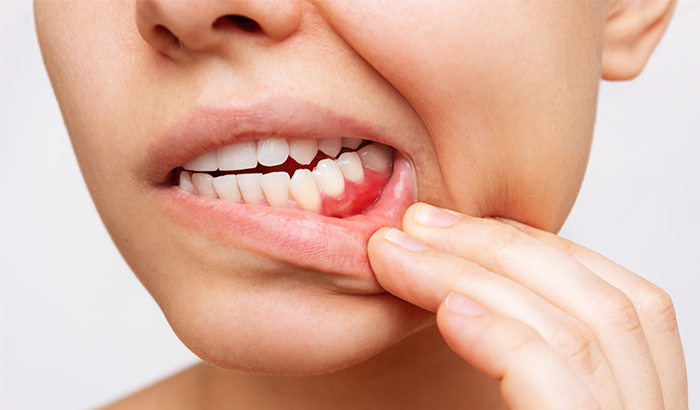What Is Gum Disease
Happy Valley, OR
 Brushing twice or three times daily for at least two minutes each session and flossing once a day can go a long way in preventing gum disease. Even so, many people still suffer from this oral disease. The Centers for Disease Control (CDC) in a recent analysis hinted that approximately 47.2 percent of the adult population in America suffers some form of gum disease. This translates to about 64.7 million people, who are said to have mild, moderate, or severe gum disease. At Fusion Dental Specialists we strive to ensure our community does not develop gum disease and other oral issues. Brushing twice or three times daily for at least two minutes each session and flossing once a day can go a long way in preventing gum disease. Even so, many people still suffer from this oral disease. The Centers for Disease Control (CDC) in a recent analysis hinted that approximately 47.2 percent of the adult population in America suffers some form of gum disease. This translates to about 64.7 million people, who are said to have mild, moderate, or severe gum disease. At Fusion Dental Specialists we strive to ensure our community does not develop gum disease and other oral issues.
What is Gum Disease?
Gum disease, also known as periodontal disease,is an infection that attacks the gums and worsens over time. It develops in stages and at first, you may not realize that you have it. It may continue to manifest silently, and by the time you discover that you have the disease, it has progressed to a serious stage.
Gingivitis, which progresses to periodontitis, starts with mild or no symptoms. You may see occasional bleeding of gums while brushing and flossing. You also may have bad breath. However, you may just think these are not serious problems. However, they indicate that something is wrong with your oral health.
Periodontal disease occurs when bacteria within the mouth release toxins that cause gum irritation, leading to gum inflammation. When you do not get the bacteria cleared away through oral hygiene practices like brushing regularly and cleaning between teeth with floss, then it forms plaque. It is difficult to remove plaque, especially if you allow it to mature and harden to form tartar. You will need professional cleaning to eliminate it.
Early-Stage Gum Disease
At its onset, gum disease presents as gingivitis. It is a milder form of the disease and features symptoms such as bleeding and swollen gums. Some individuals may have no symptoms. Luckily, gingivitis is reversible if timely treatment is offered.
Advanced Gum Disease
As the disease progresses, the inner gum tissue layer pulls away from the teeth’s surface, forming pockets. This is referred to as gum recession. Advanced gum disease presents with bone loss. The bone supporting the teeth is invaded by the infection as it spreads and causes further damage. The most important thing is to make sure that gum disease treatment is done early on before it progresses. Otherwise, it may cause irreversible damage.
How Do You Identify Gum Disease?
Although a dentist is the right professional to determine whether it is gum disease or another oral condition, there are signs that could signal the presence of gum disease. A person could have bad breath that persists even after brushing their teeth. Having swollen, bleeding, or tender gums is also a sign. Toothaches, tooth sensitivity, and pain while chewing are other possible symptoms of gum disease. Your teeth could appear longer than they should due to the gum recession.
Get treatment for gum disease as soon as you detect the symptoms or when a dentist detects it. We also provide periodontal maintenance for gum disease. Visit us at Fusion Dental Specialists to have your gums and teeth checked for gum disease. Call us today at (503) 653-2299 to book an appointment. |
